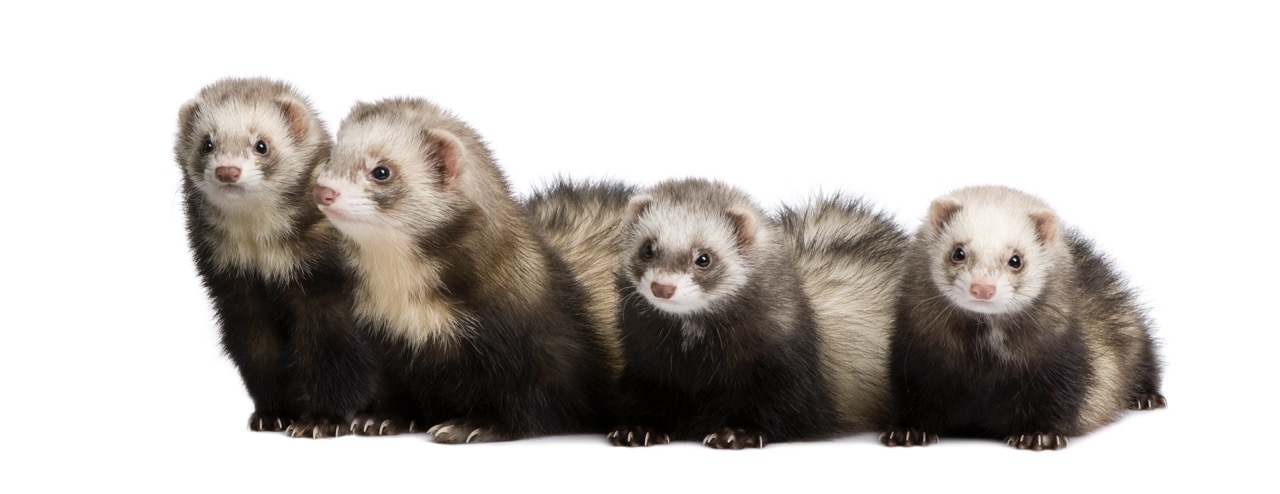Understanding the biology of ferrets, particularly their urination habits, is essential for both ferret owners and veterinarians. As small but complex mammals, ferrets exhibit unique behaviors related to their urinary habits, influenced by their anatomy, hormones, and environmental factors. This article aims to shed light on the intricacies of ferret urination and how caregivers can better cater to the needs of these fascinating creatures.
The Anatomy of Ferrets: A Foundation for Understanding Urination
Ferrets belong to the Mustelidae family and possess a highly specialized anatomy that plays a significant role in their urination habits. Their kidneys are adapted to filter and concentrate urine efficiently, allowing ferrets to maintain hydration and manage waste effectively. The urinary tract consists of the kidneys, ureters, bladder, and urethra, each part playing a crucial role in the elimination of waste. The ferret bladder can accommodate a fair amount of urine, and its muscular walls allow for rapid contraction when urination occurs.
Additionally, the ferret’s urinary sphincters—both internal and external—regulate the flow of urine, enabling them to control their urination to a certain extent. This anatomical structure allows ferrets to hold their urine for varying periods, depending on their activity level and environmental stimuli. Moreover, ferret anatomy influences their propensity to mark territory, a common behavior observed in both wild and domesticated ferrets.
Understanding the anatomical aspects of ferrets is crucial for caregivers, as it lays the groundwork for recognizing normal urination patterns and identifying potential health concerns. Abnormalities in urination, such as frequent urination or straining, may indicate underlying health issues that require veterinary attention. By being attuned to the anatomy of ferrets, caregivers can make informed decisions regarding their pets’ health and wellbeing.
Hormonal Influences on Ferret Urination Patterns
Hormones play a pivotal role in regulating various bodily functions in ferrets, including their urination habits. In male ferrets, the presence of testosterone influences territorial marking and urination frequency. During the breeding season, male ferrets may exhibit increased urination as they mark their territory to attract mates. Conversely, female ferrets experience significant hormonal fluctuations during their estrus cycle, impacting both frequency and volume of urination.
An imbalance in hormones can lead to alterations in urination behaviors. For instance, spayed female ferrets may experience changes in urination patterns post-surgery, which could include decreased frequency or changes in the odor of urine. Similarly, neutered male ferrets may exhibit a decline in territorial marking behaviors. Understanding these hormonal influences is key for caregivers to interpret their ferrets’ behaviors accurately and manage any potential issues.
Furthermore, administering hormone treatments or medications can have varying effects on ferret urination. Caregivers must be aware of these changes to ensure their ferrets remain healthy and comfortable. Regular veterinary check-ups and open communication with a veterinarian can help monitor hormonal balance in ferrets, leading to better management of their urination and overall health.
Environmental Factors Affecting Ferret Urination Habits
The environment in which a ferret resides can significantly affect its urination habits. Ferrets are highly social and active animals, and their surroundings can influence their behavior. Factors such as space, cleanliness of the litter area, and the presence of other pets can all play a role in how often a ferret urinates and where they choose to do so. For instance, a clean and spacious litter box will encourage appropriate urination habits, while a dirty or cramped space may lead to accidents outside of designated areas.
Additionally, temperature and humidity can impact a ferret’s hydration levels and, consequently, their urination frequency. In warmer environments, ferrets may drink more water to stay hydrated, leading to more frequent urination. Conversely, cold weather may cause them to drink less, resulting in decreased urination. Caregivers should be attentive to these environmental factors and adapt their care routines accordingly to ensure that ferrets have access to clean water and suitable living conditions.
Social dynamics also play a role in ferret urination patterns. In multi-ferret households, the presence of dominant or submissive individuals can influence where and when each ferret chooses to urinate. Caregivers should observe their ferrets’ social interactions and provide ample resources, such as multiple litter boxes, to minimize competition and stress, ultimately leading to healthier urination habits.
Implications of Urination Behavior for Ferret Caregivers
Understanding ferret urination behavior is essential for caregivers to provide optimal care. Abnormal urination patterns can signify underlying health problems, such as urinary tract infections or bladder stones. Caregivers should monitor their ferrets for changes in urination frequency, smell, and consistency to catch potential health issues early. Recognizing these signs allows for timely veterinary intervention, which can prevent more serious complications.
Proper litter box management is also crucial. Ferrets are generally clean animals and prefer designated areas for urination. Ensuring that litter boxes are cleaned regularly and placed in quiet, accessible locations can encourage appropriate urination behaviors. Caregivers should experiment with different types of litter to find what their ferrets prefer, as this can significantly affect their willingness to use the litter box.
Lastly, effective communication with veterinarians about any changes in urination habits can help in maintaining ferret health. Caregivers should keep a close eye on their pets’ hydration, diet, and overall behavior, as these factors are interconnected with urination patterns. A proactive approach to understanding and managing ferret urination will result in healthier, happier pets.
The biology of ferret urination is a complex interplay of anatomy, hormones, and environmental factors. By understanding these aspects, caregivers can foster a healthier environment for their ferrets and address potential health concerns effectively. Through observation and proactive management, ferret owners can ensure that their pets lead enriched lives, minimizing complications associated with urination behavior and promoting overall wellbeing.










